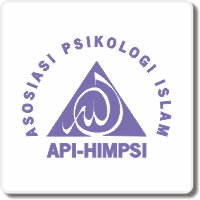EKSISTENSI PERKEMBANGAN MAZHAB PSIKOLOGI ISLAM SEBAGAI ALIRAN BARU DALAM PSIKOLOGI
DOI:
https://doi.org/10.32923/psc.v1i1.881Keywords:
History, School, Human, Islamic PsychologyAbstract
This paper explains about of the development of Islamic psychology which the explanation begins with the history of contemporary psychology. Then explain the reasons for the emergence of Islamic psychology. With the development of new schools and theories that emerged. Because it is open to scientists to provide criticism and refinement of existing theories. The presence of the Islamic Psychology school is a form of psychology based on human image according to Islamic teachings, which studies the uniqueness and patterns of human behavior as an expression of the experience of interaction with oneself, the environment, and spiritual nature, with the aim of improving mental health and the quality of religious life on the basis of Islamic noble values to achieve the happiness of living in this world and the hereafter. The existence of this paper is expected to trigger psychology scientists to develop Islamic Psychology according to figures in Muslim thought as a study of behavior and mental life on the basis of theories on understanding the verses of the Qur'an and Sunnah.
Downloads
Published
Issue
Section
License
Copyright Notice
The Psychosophia: Journal of Psychology, Religion, and Humanity is under the Creative Commons Attribution 4.0 International (CC-BY 4.0) License, according to which:
1) Authors retain copyright and grant the journal the right to first publication, with the work simultaneously licensed under the Creative Commons Attribution (CC-BY 4.0) that allows the sharing of articles published with the acknowledgment of authorship and the initial publication in this journal.
2) The authors are authorized to make additional contracts separately for distribution of the version of the work published in this journal (for example, publication in an institutional repository or as a chapter of the book), as long as there is recognition of authorship and initial publication in this journal.
3) Authors are authorized and encouraged to publish and distribute their work online (for example, in institutional repositories or on their personal pages) at any time before or during the editorial process, as it increases the impact and reference of the published work.






